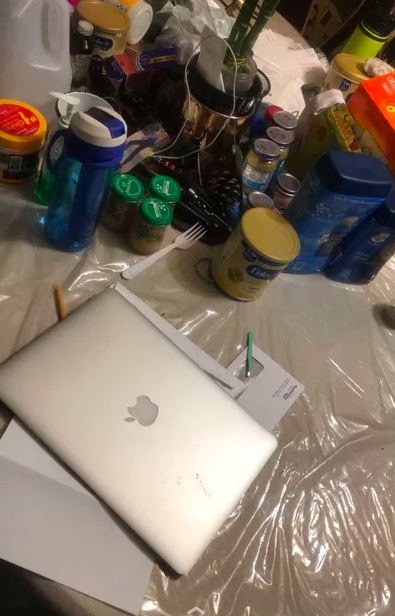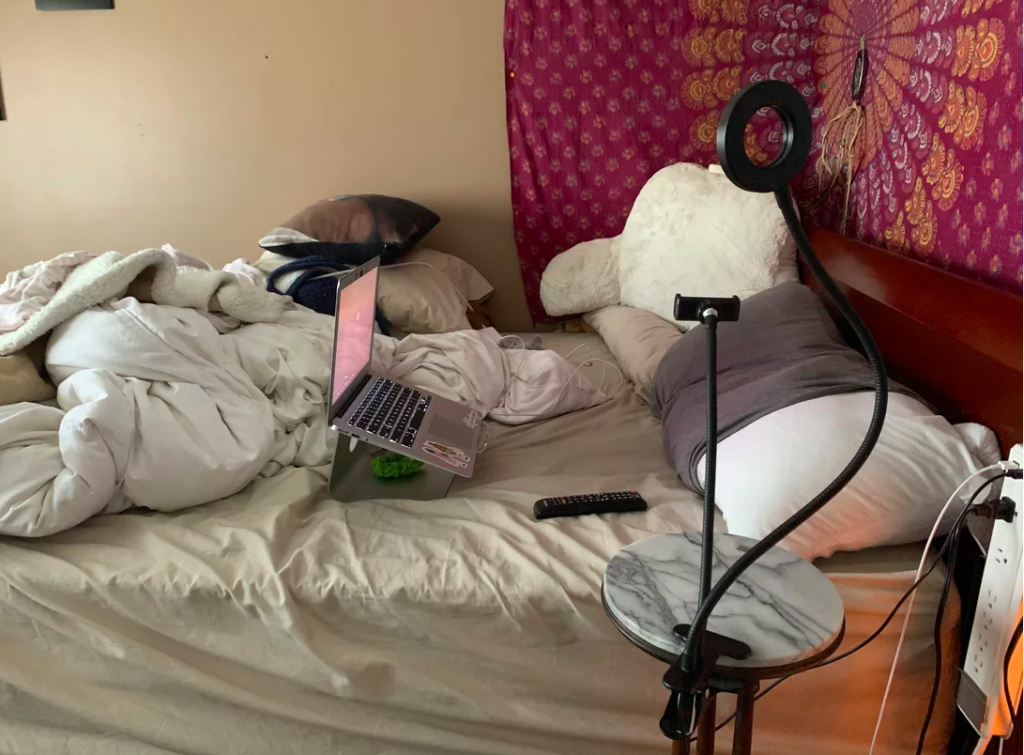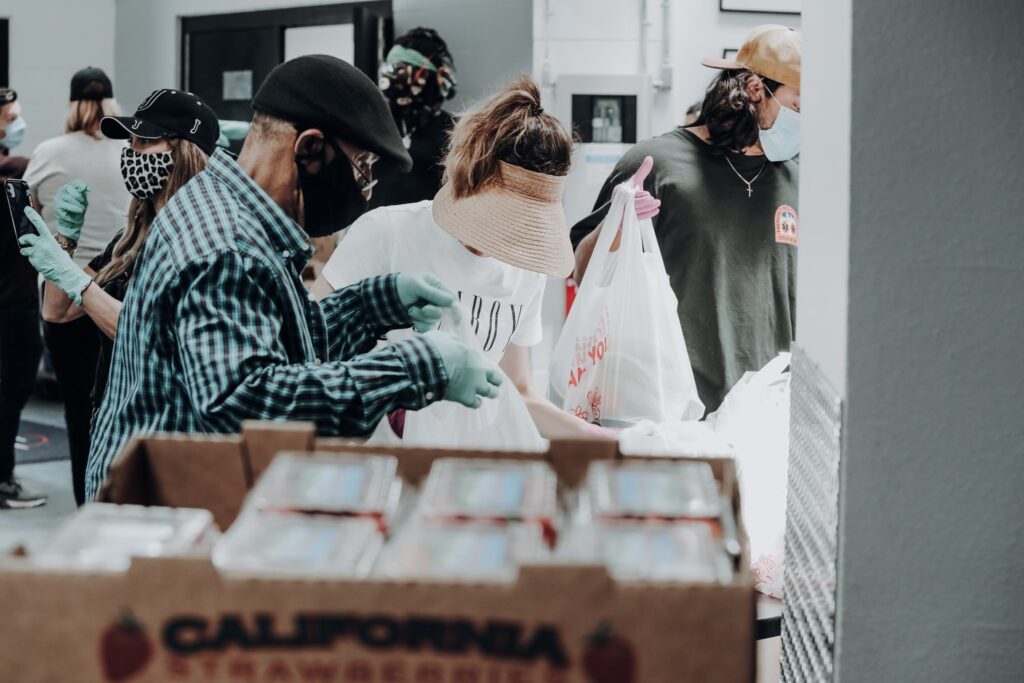Edited and Packaged by Diana Testa
College seniors share their personal experiences dealing with the unprecedented coronavirus pandemic.
Nothing feels real. I got an email from my professor today talking about assignments that are due and it was almost a shock, like I had forgotten that I was still in college. Getting my homework done and wrapping up my senior year doesn’t really matter to me anymore, because all I’m thinking about are my friends and family. Is my dad’s cold just a cold? Are my girlfriend and her family okay? Is anyone checking on my grandparents to make sure they have food? It feels like we are all in survival mode and anything that used to matter to me, like school or work, feels insignificant now.
Abby Foster
Abby Foster, a senior at SUNY New Paltz, is not alone. She is one of nearly 4 million college graduates of the class of 2020 trying to navigate their newfound adulthood while also dealing with an unprecedented public health crisis.
As colleges across the country shut down due to the novel coronavirus, students were forced to come home and finish the semester remotely. The total upheaval of daily routines and dramatic shift to online learning is the reality for so many students across the country since this virus staked its claim on US soil in January.
Things are changing at a pace that feels impossible for many people to keep up with. Suddenly, thoughts about Friday night plans were replaced by anxieties about what the future would hold for what little they had left of their college lives and the job search that is to come. Students are left to grapple with an unprecedented global pandemic, all while continuing their education and striving toward graduation.
A New Way to Learn
Sarah Reigrod is a graduating adolescent education major at SUNY New Paltz. Reigrod, amongst other college students, has had to adjust to a new way of learning— from her home.
I’m really over school in general. I feel like I’m not actually learning anything. I’m just plugging answers into an online quiz and forgetting about it.
Sarah Reigrod

When Covid-19 initially spread across the United States, people were forced to significantly alter their daily routines to abide by social distancing protocols. Since college campuses are a hot spot for high volumes of people, they had no choice but to shut down in-person instruction and switch to remote learning.
While making the adjustment and settling into this new way of learning, many students are arguing the quality of education when delivered remotely is not equitable to traditional in-person classes. Additionally, some are lacking the proper resources at home to complete assignments remotely— resources that are normally available to them on their school’s campuses.
College students Sierra Lugo and Emily Trama’s remote workspace.
“My laptop broke at the beginning of the semester and I couldn’t afford a new one just yet. Unfortunately, while I am able to use my mother’s laptop for now, it looks like I will have to purchase a new one before I felt financially stable enough to do so,” said Emily Tabor, a fourth-year education major at SUNY Brockport.
A Sudden Change in Plans
“Being at home, I miss the idea of what my final semester was shaping up to look like and I am saddened about potentially not walking for my graduation. I am also anxious about online classes and how this will affect my GPA in the long run,” said Kelly Nolan, a senior at SUNY New Paltz.
Nolan, like others in her class, has had to come to terms with her college experience coming to an unexpected end.
“This virus changed a lot of my plans and ruined a lot of them as well,” said Emily Ereifej, a graduating senior at the University of Central Florida. “I had always planned to continue onto grad school here in New York, but I didn’t expect to move home this soon.”
As a resident of New York, she is an out-of-state student, and as the enforcement of social distancing orders continued throughout the remainder of the school year, Ereifej has been overwhelmed by unexpected roadblocks she encountered not being a resident of the state in which she studies.
“My lease ends in July and I’ve been home since March. So far I’ve had to pay April and May’s rents and I’ll also be paying June and July without actually living there. None of the students living off campus were allowed to break their leases early either,” she said.
Additionally, while she’s stuck in a lease she can’t get out of, Ereifej has been trying for months to return to her apartment in Orlando to at least retrieve her belongings.
“Most flights have been canceled in order to prevent the spread of coronavirus, or just because there are not enough people [on the flight]. I’ve been having a really difficult time trying to get back to Florida and get my stuff as a result,” said Ereifej. “When I first came home in March I also didn’t expect to be home for this long, so I didn’t pack very heavy, most of my stuff is still over there including my car. If I would’ve known originally I would be home for this long, I would’ve packed a lot more stuff with me.”
Emotional Hardships
In a pre-coronavirus world, the transition period from college life to adulthood can be one of great anxieties and struggles for emerging graduates. Although it’s not an official diagnosis, “post-graduation depression” is commonly used to describe the extreme sadness and impaired functioning that recent grads report after they leave behind the world they created in college.
Pandemic Stress from Diana Testa on Vimeo.
A recent study found that 34 percent of millennials always or often feel more lonely because of the coronavirus situation, which is 70 percent higher than baby boomers, where the corresponding number is 20 percent.
“For [this class of] college seniors, the pandemic arrived during one of their most formative years. They are missing out on graduation, the final semester of college, internships and the traditional job application and interview process. They are rightly worried that this pandemic and the life milestone experiences they are missing out on could negatively impact their career development and future,” said Mark Beal, Rutgers University School of Communication and Information Assistant Professor of Practice in Public Relations.
“I can definitely tell my mental health is deteriorating, I always kind of feel like I am walking on a tightrope almost.”
Emily Tabor
As an education major, Tabor is required to complete student teaching hours as well as other certifications in order to graduate. Her student teaching experience was cut short by the stay at home orders that shut down schools across the state in late March, and while she has noticed a general decline in her emotional well-being since moving home, she attributes her persistence to the students she teaches.
“I have dealt with depression for years and as usual some days are harder than others. I do not have the best relationship with my family so sometimes I feel claustrophobic. I rarely ever leave my room, but I try to keep myself composed for my students, and although I [only] spent about 3 months with them, I have a strong connection with most of them,” said Tabor. “I think the only thing keeping me balanced is the routine I have made for myself, good Netflix shows, and the fact that I need to keep my students on task. They give me a purpose in my everyday ‘life.’”
Some students have had their time at college limited even further by factors pre-coronavirus shutdown. Kelly Nolan, a senior at SUNY New Paltz, transferred after being unimpressed with her previous college and was in search of a state school with lower tuition costs.
“Unfortunately, being a transfer student has its ups and downs. You don’t really have the same amount of time to make long lasting memories or friends in a new college environment and every second counts. If you’re like me, a little shy upon meeting new people, it may take time to acclimate. What’s awful for me personally is that I finally felt things were coming together in my last semester and I was thriving and happy.”
Financial Uncertainty
According to a 2015 study by the American Psychological Association, on average, Millennials report higher stress levels than those in older generations. That same study found that 79% of Millennials say that work is a significant source of stress and 82% rated money as a top source of their stress.
This financial stress that young people are already reporting has only worsened for recent college grads. Beyond uncertainty about their individual chances at landing a job, some grads are also preparing to enter industries that may be completely changed or possibly even decimated by the pandemic. The class of 2020 is entering the workforce right as the national unemployment rate is the highest it’s ever been since the Great Depression.
“I think many seniors that were already feeling anxious about stepping into the world, feel like they were suddenly thrown into a much more chaotic life and much sooner than originally anticipated,” said Nolan. “Not only do we now have to worry about graduating, many of us now are worrying about how we will properly support ourselves with the job market being as crazy as it is currently.”
Matt Erhard, managing partner at recruiting firm, Summit Search Group, agrees the job search for recent college grads is especially difficult right now. He says the entry-level positions that could have gotten their foot in the door this time last year have either disappeared or are going to those who would likely, under normal circumstances, be in higher positions, as a lot of businesses are either closed or operating at reduced capacity, many even freezing the hiring process of new employees.
In addition to post-graduate stress related to job hunting, many students are experiencing economic hardship as social distancing orders have shut down businesses across the country, leaving millions without an income.
“I am currently living with my parents because I knew I would have to cut my hours back for student teaching and would not be able to live on my own,” said Tabor. “I was thankfully allowed to defer my car payments until august, but it has been a month long battle [trying to file for] unemployment for the past month. I do not qualify for traditional unemployment because I did not make enough money at my job.”
Looking Ahead
While college seniors have been struggling to adjust to a world on lockdown and still prepare for their emergence into the workforce, some are finding the silver lining in a pandemic-ridden world.
“I got out of my toxic living situation in my off-campus housing, I finally had the time to do some spring cleaning, I lost 10 pounds so far and I’m cooking more now that there isn’t much else to do,” said Reigrod.
Other students have used this pandemic to bring about their extraordinary skills. Instead of focusing on the possible negative implications or feelings they’re experiencing, they have sought for other ways on how they can continue to improve themselves while their dream is put on hold. Some started their own online businesses, worked as a freelancer, started a new hobby and learned a new skill.
And even though college grads seem to be unsure of where to go next, they are ultimately optimistic and excited to see what a future after COVID-19 would look like. As a class, there may even be some benefit to graduating amid a pandemic.
“While they will never get back their on-campus senior year experiences, once corporate American opens for business and begins recruiting and hiring recent graduates, this resilient group of Gen Zers will be prepared and ready to compete for job openings and bring a refreshing and innovative perspective to their future employers unlike any generation before them,” said Beal.
To read more about the COVID-ERA, check out similar articles below:
Erica Ruggiero writes about the impact that COVID-19 has had on internships and the people involved.
Nick Porpora dives into COVID-19’s impact on the movie theatre industry.
Joseph Juste examines the measures taken by local food pantries and meal services to provide services while staying safe during a pandemic.
Max Freebern describes the story of two homeless women in Ulster County struggling to find housing during the pandemic.
Taylor Dowd provides insight on hunger relief organizations in New Paltz and Ulster and how they’re managing during the pandemic.


